Célia Nkala - FLOP TURN RIVER
VERNISSAGE LE 7 SEPTEMBRE 2024, 18-21H
Nocturne des galeries rue Guenegaud, jeudi 19 septembre à PARTIR DE 18H
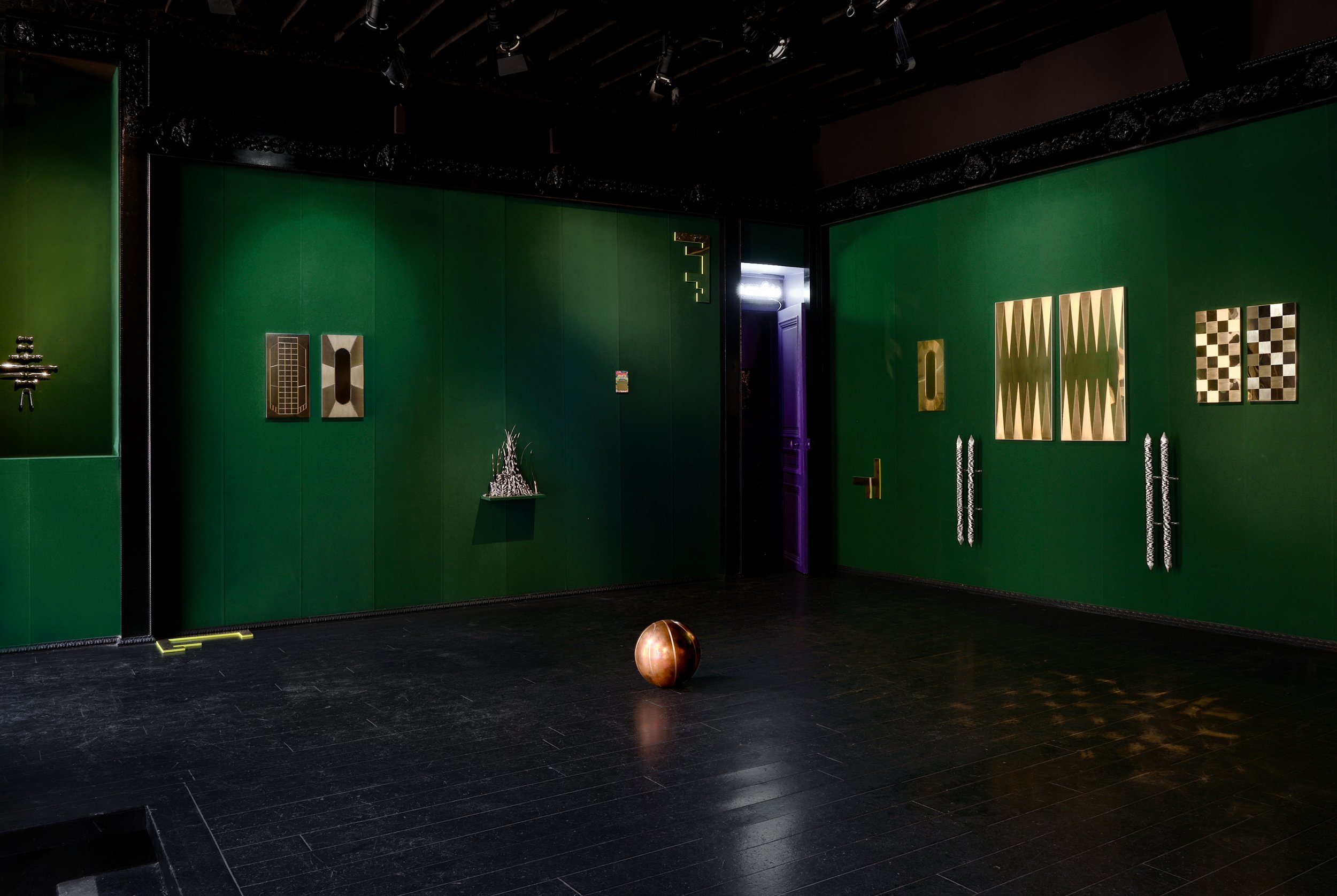
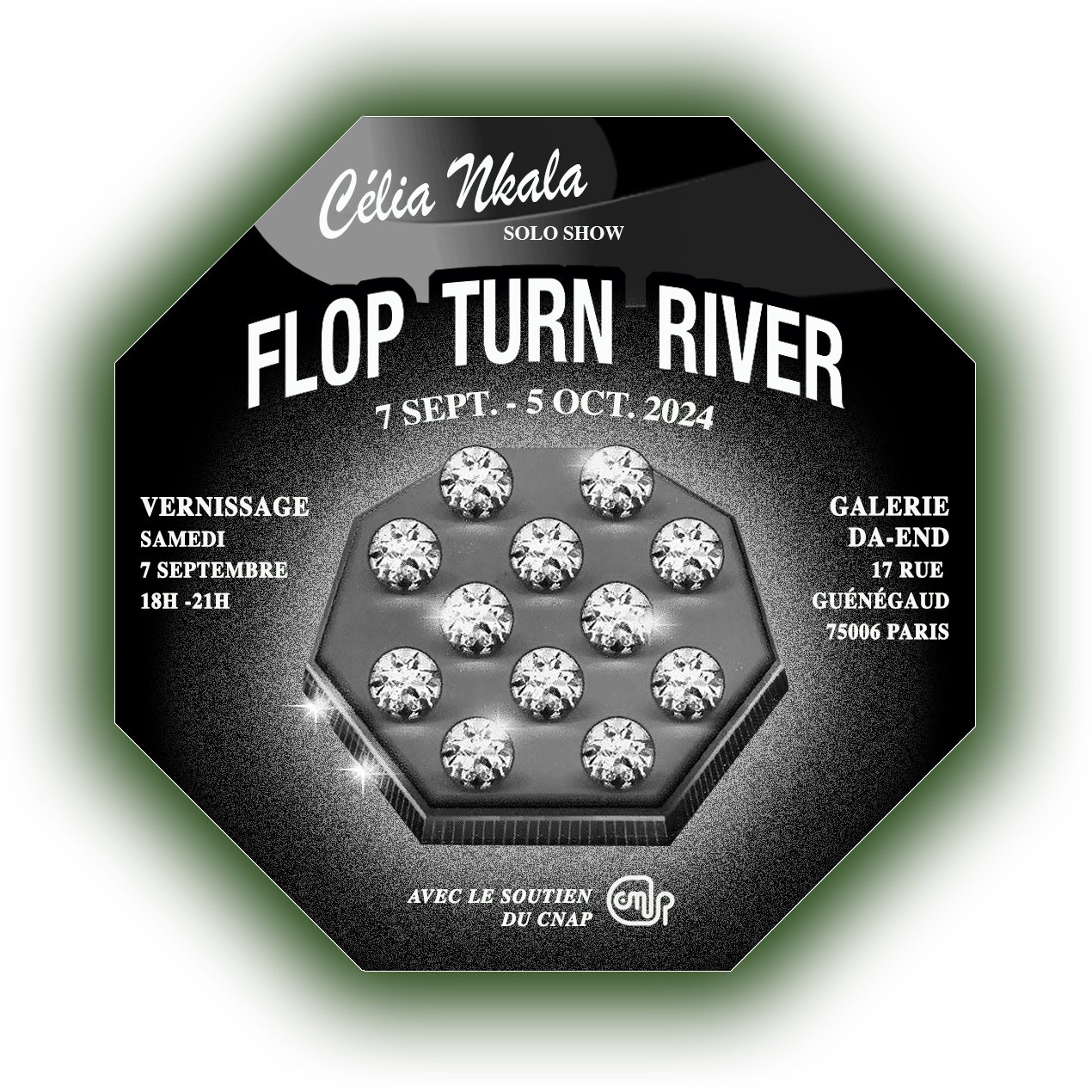
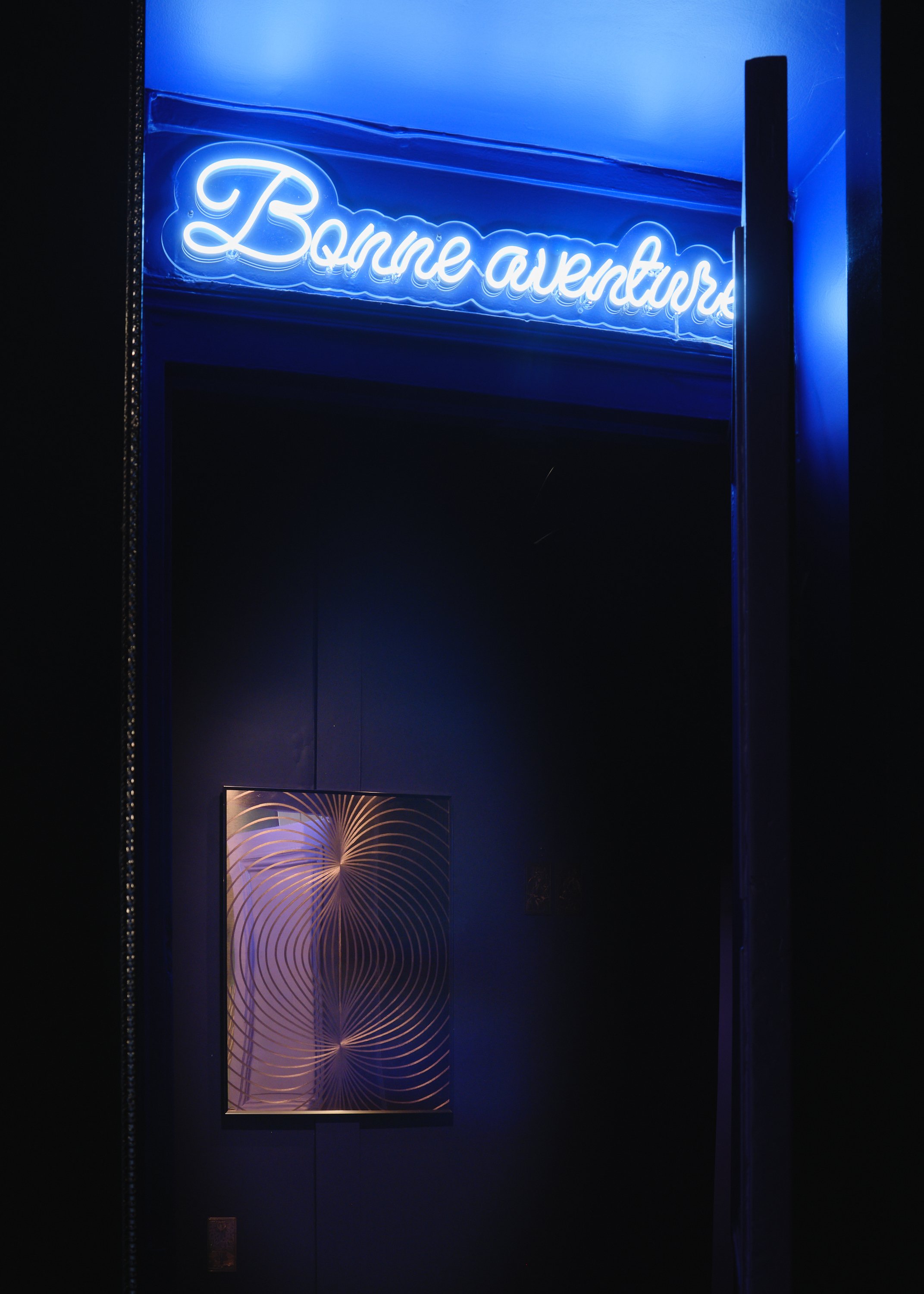
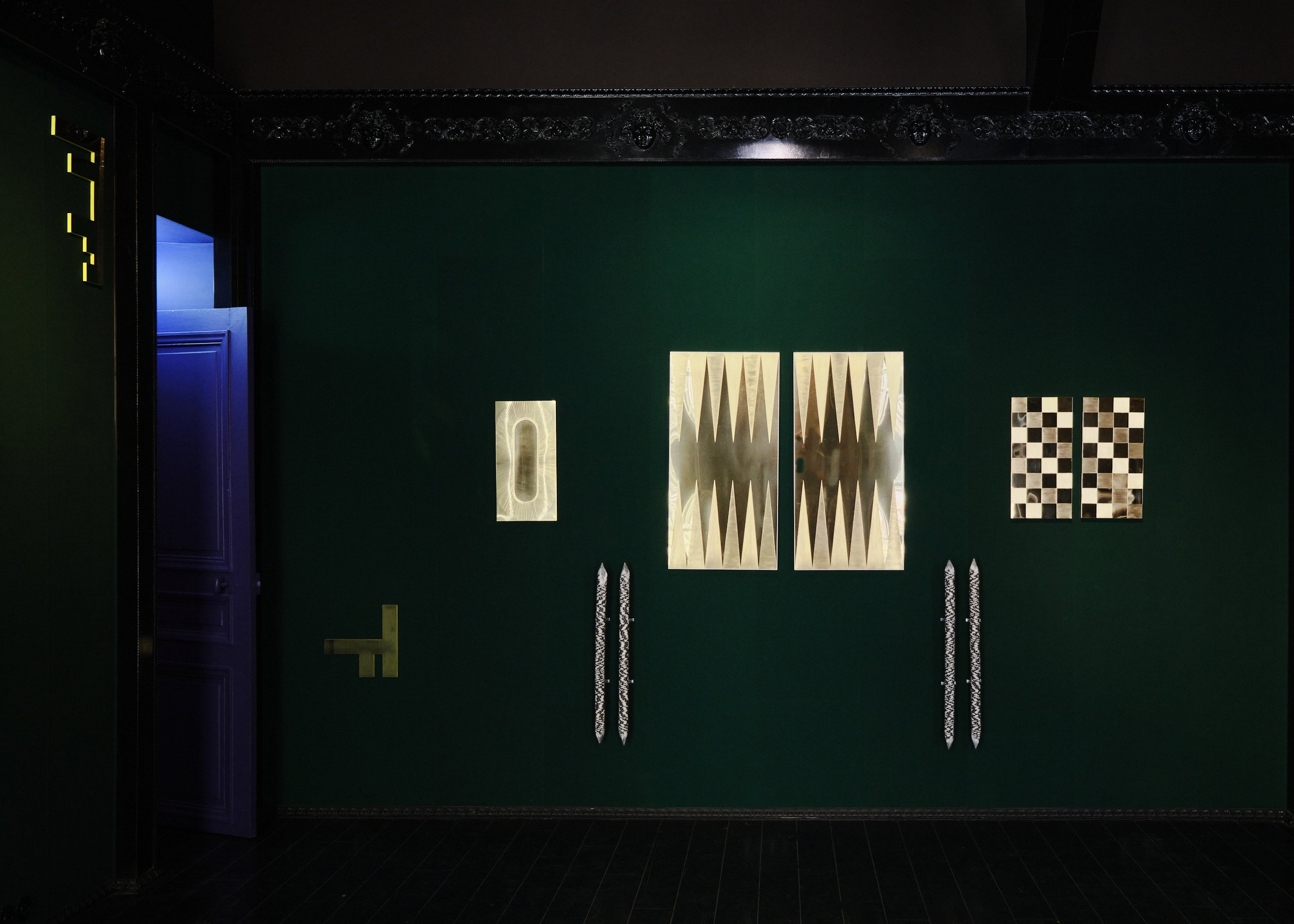
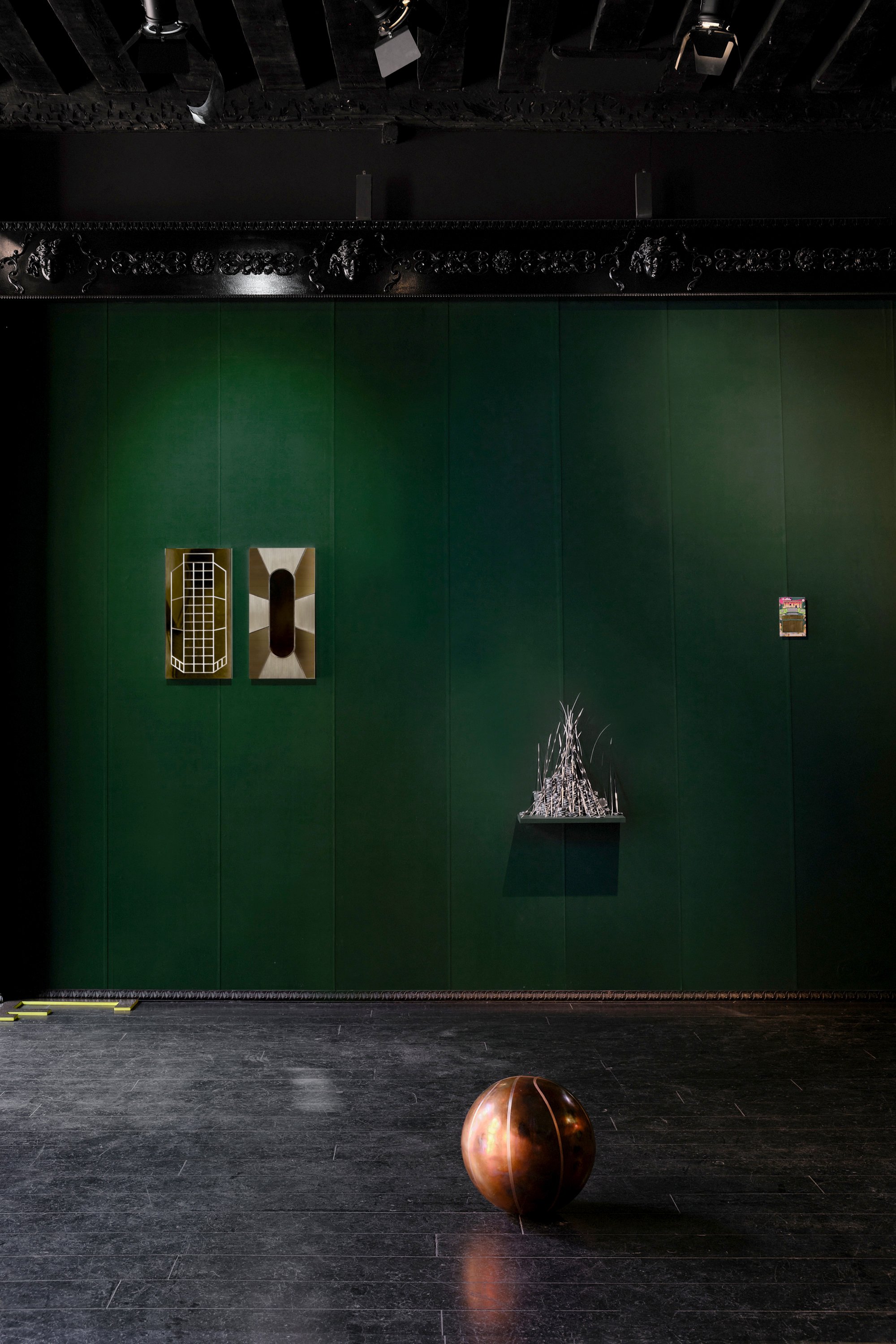
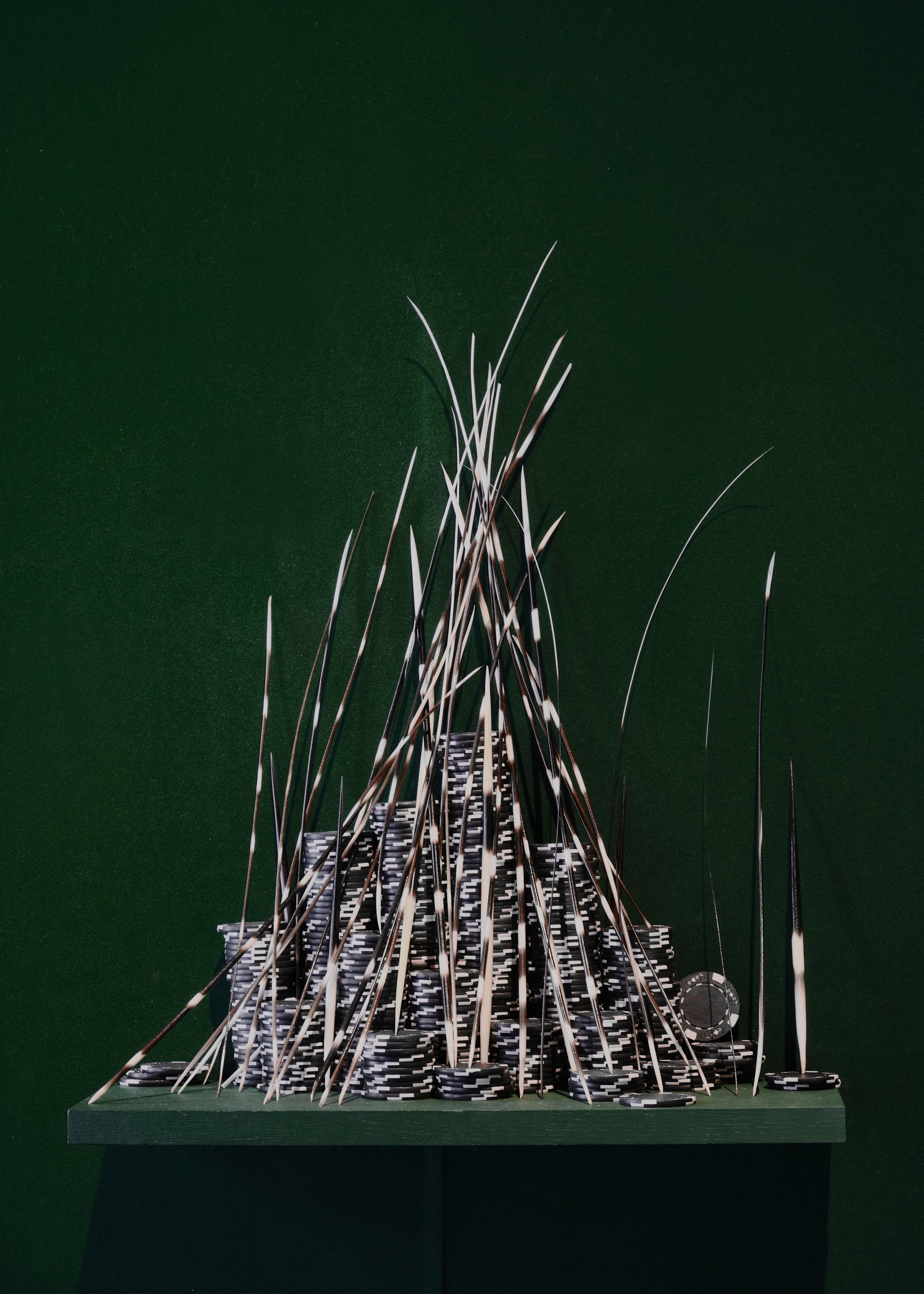
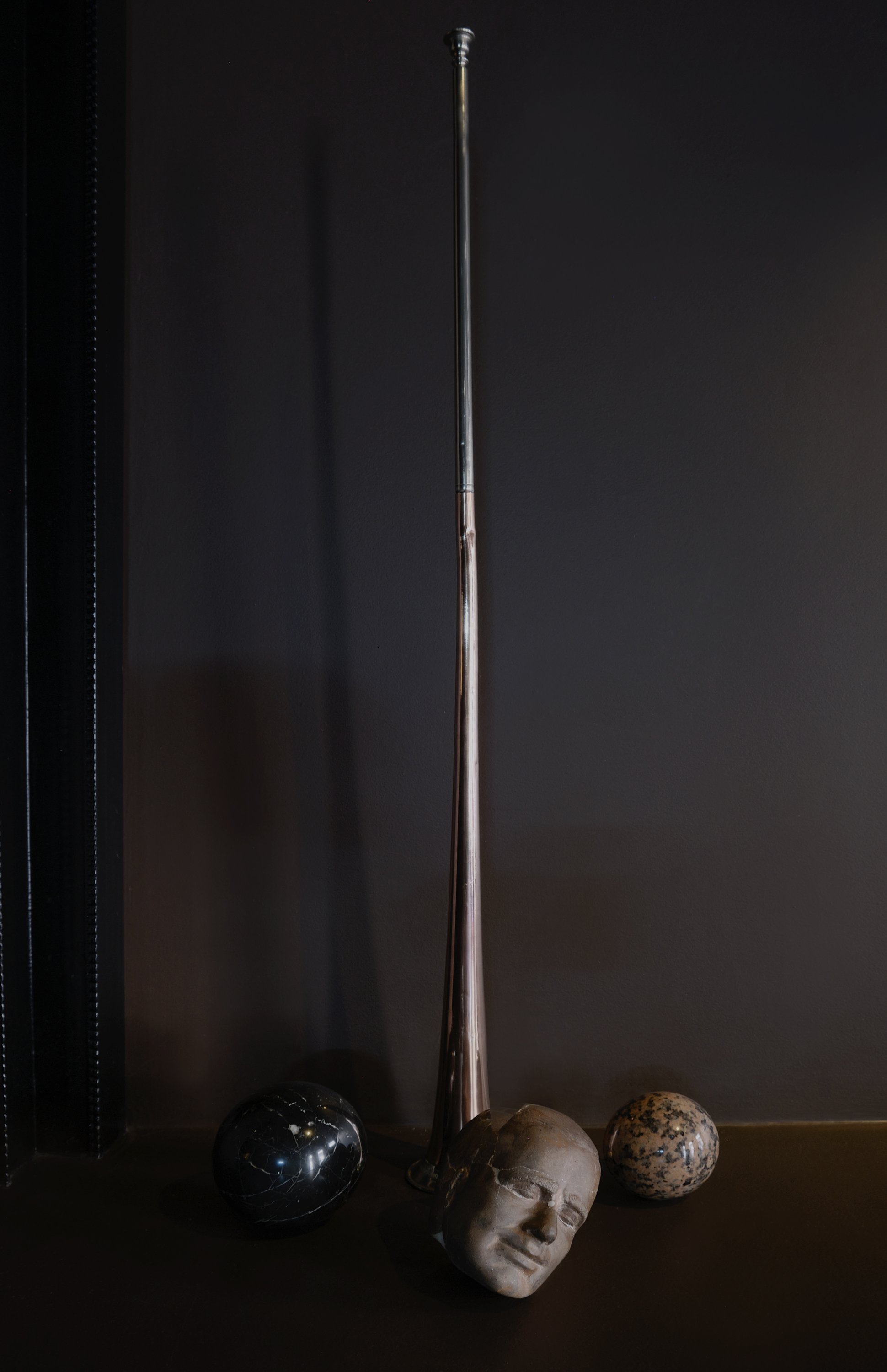
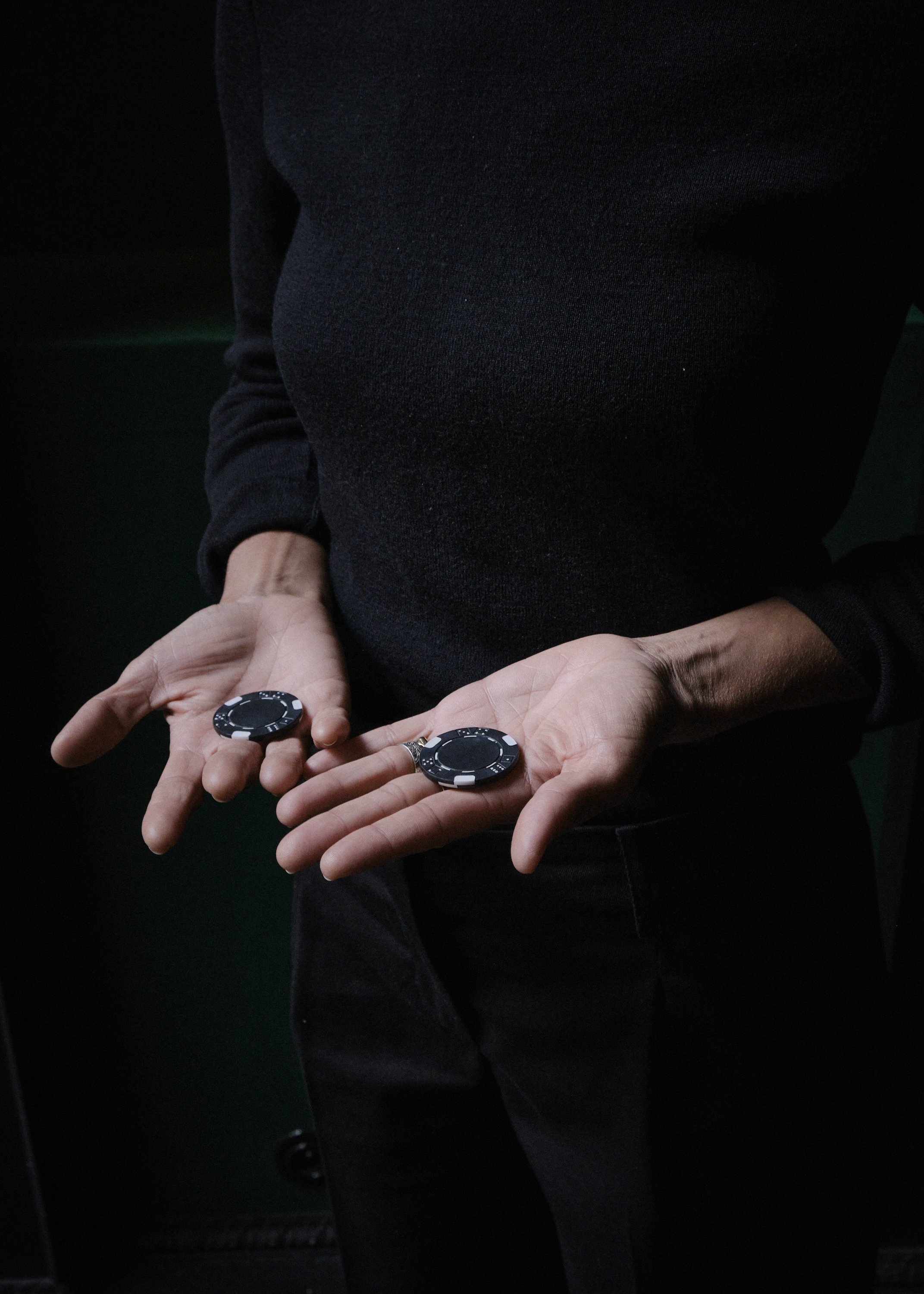
© LoMartinWilder
EXPOSITION DU 7 SEPTEMBRE AU 5 OCTOBRE 2024
Avec le soutien aux galeries
du Centre National des Arts Plastiques
FLOP, TURN, RIVER. Ces trois termes pris l’un à la suite de l’autre, pour leurs sonorités et leurs brièvetés, ont quelque chose d’une comptine. Les trois phases d’une partie de poker se retrouvent ainsi résumées : le retournement de trois cartes qui précède l’ouverture du jeu, le tournant de la 4ème qui va influer sur le choix des joueurs puis la révélation de la 5ème et dernière carte qui les sanctionne ou les récompense. Très présent dans l’imaginaire populaire, le poker concentre à la fois les notions de hasard et de stratégie et se fait souvent prétexte à une réflexion plus large sur la fortune. Les œuvres de Célia Nkala que cette exposition propose de rassembler n’ont ainsi pas seulement trait au poker mais plus largement à la notion de destin, à une métaphysique du pari.(…)
Dans son texte Cosmic trip (ou les vestiges d’un monde à venir) au sujet de la pratique de Célia Nkala, Florian Gaité pointait la façon dont l’artiste faisait advenir dans ses œuvres une cosmologie personnelle. Mentionnant les toupies inversées d’Eternel Retour ou les éléments antinomiques de l’installation Révolutions et sa tête coupée, il soulignait la prééminence du motif de la boucle, la mélancolie aussi de ce rapport circulaire au temps qui pointe la vanité de toutes choses. Le jeu y participe pleinement et le détour par le genre de la vanité, permet une continuité comme dans le tableau d’Adriaen Coorte où une paire de dé figure à côté d’une montre. La galerie Da-end qui s’est souvent revendiquée comme un cabinet de curiosité contemporain renforce cette filiation. Le goût de Célia Nkala pour les matériaux polis et miroitants n’est pas sans rappeler les codes du sacré. Le pari de Pascal et le vertige que le philosophe propose en assimilant le fait de croire ou non en dieu à un rapport de statistique où le gain comme la perte sont infinis pourrait être l’un des sous-textes du malicieux Fortune II. L’acheteur peut ainsi décider si il gratte la pellicule d’or et défait l’oeuvre au profit d’un gain hypothétique ou si il perd l’occasion de savoir si le billet et gagnant et fait le pari de l’artiste, celui d’une valeur qui va au-delà des matériaux. Le jeu, comme le dit également Caillois, n'est pas producteur de valeur mais terrain d’échanges.
Le tarot dont l’ambivalence est d’être à la fois un jeu et un support divinatoire a tout particulièrement intéressé Célia Nkala qui a d’ailleurs souhaité inviter une cartomancienne dans l’antichambre de l’exposition. Dans cette discussion avec les cartes ce n’est plus seulement une distraction, un divertissement qui se joue mais un réel questionnement aux dimensions existentielles. Quelle est la main que l’on a et la meilleure façon de jouer sa part ? Se gardant bien de dire si elle y croit ou non, l’artiste concentre dans Les coupes l’importance inconsciente que l’on accorde aux signes et qui nous amène à prendre certaines décisions. Certains jeux ont ainsi valeur d’oracles, mais ici comme les dés suspendus d’Abolition du hasard, aucun n’évoque une issue en particulier. Le travail de l’artiste est ainsi comme la tranche d’un jeu pile ou face : dans son suspens même, son retardement se joue la possibilité d’un monde.
Henri Guette
FLOP, TURN, RIVER. These three terms, taken one after the other, have something of the sound and brevity of a nursery rhyme. The three phases of a poker game are summed up in this way: the three-card turn that precedes the opening of the game, the turn of the 4th card that influences the players' choices, and then the revelation of the 5th and final card that either sanctions or rewards them. Very much in the popular imagination, poker combines notions of chance and strategy, and is often used as a pretext for a broader reflection on fortune. Célia Nkala's works in this exhibition are not just about poker, but more broadly about the notion of destiny and the metaphysics of betting. (…)
In his text Cosmic trip (or the vestiges of a world to come) on the subject of Célia Nkala's practice, Florian Gaité pointed out the way in which the artist conjures up a personal cosmology in her works. Mentioning the inverted spinning tops in Eternel Retour or the antinomic elements of the installation Révolutions and its severed head, he emphasized the pre-eminence of the loop motif, and the melancholy of this circular relationship with time, which points to the vanity of all things. The game plays a full part in this, and the detour through the genre of vanity allows for continuity, as in Adriaen Coorte's painting where a pair of dice appears next to a watch. The Da-end gallery, which has often claimed to be a contemporary curiosity cabinet, reinforces this connection. Célia Nkala's taste for polished, shimmering materials is reminiscent of the codes of the sacred. Pascal's wager, and the vertigo that the philosopher proposes by equating belief in God with a statistical relationship where gain and loss are infinite, could be one of the subtexts of the mischievous Fortune II. The buyer can thus decide whether to scratch off the gold foil and undo the work for the sake of a hypothetical gain, or whether to lose the opportunity to find out whether the ticket is a winner and make the artist's bet, that of a value that goes beyond materials. The game, as Caillois also says, is not a producer of value, but an arena for exchange.
The tarot, whose ambivalence lies in the fact that it is both a game and a divinatory medium, was of particular interest to Célia Nkala, who decided to invite a fortune-teller into the exhibition's antechamber. This discussion with the cards is no longer just a distraction, an entertainment, but a real questioning with existential dimensions. Which hand do you have, and how best to play your hand? Careful not to say whether she believes it or not, the artist concentrates in Les coupes on the unconscious importance we attach to signs, leading us to make certain decisions. Some games have the value of oracles, but here, like the suspended dice in Abolition of Chance, none of them suggests a particular outcome. The artist's work is like the edge of a coin toss: in its very suspense, its delay, the possibility of a world is at stake.
Henri Guette